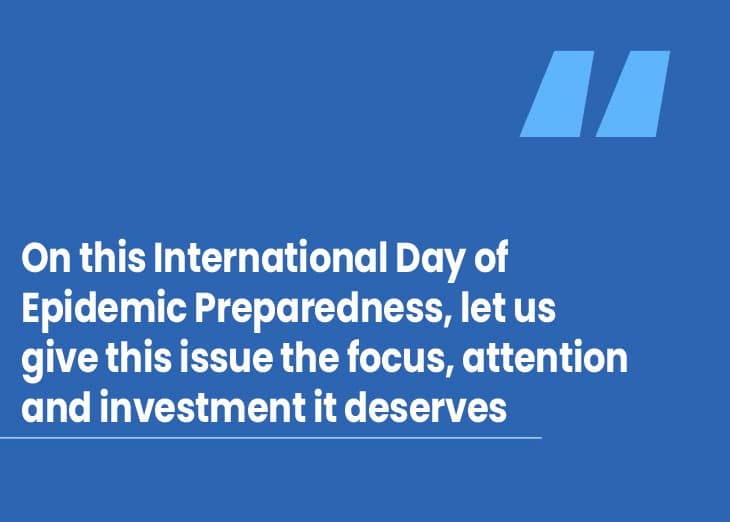Today, the world celebrates yet again the International Day of Epidemic Preparedness by carrying out educational activities.
As exemplified by the current coronavirus disease (COVID-19) pandemic, major infectious diseases and epidemics have devastating impacts on human lives, wreaking havoc on long-term social and economic development.
Global health crises threaten to overwhelm already overstretched health systems, disrupt global supply chains and cause disproportionate devastation of the livelihoods of people, including women and children, and the economies of the poorest and most vulnerable countries.

We add our voice to the urgent need to have resilient and robust health systems, reaching those who are vulnerable or in vulnerable situations.
In the event of the absence of international attention, future epidemics could surpass previous outbreaks in terms of intensity and gravity.
Indeed, there is great need to raise awareness, the exchange of information, scientific knowledge and best practices, quality education, and advocacy programs on epidemics at the local, national, regional and global levels as effective measures to prevent and respond to epidemics.
Only proper and timely that we strengthen epidemic prevention by applying lessons learned on epidemic management and how to prevent the stoppage of basic services, and raise the level of preparedness.
We need to stress the significance of partnership and solidarity among every individual, community and State, and regional and international organizations, in all stages of epidemic management, as well as the importance of considering a gender perspective in this regard.
The United Nations system, in particular the World Health Organization, plays a crucial role in coordinating responses to epidemics, in accordance with its mandate, and in supporting national, regional and international efforts to prevent, mitigate and address the impacts of infectious diseases and epidemics in accordance with the goal of advancing the 2023 Agenda.
As UN Secretary General Antonio Guterres said: “COVID-19 demonstrated how quickly an infectious disease can sweep across the world, push health systems to the brink, and upend daily life for all of humanity.
“It also revealed our failure to learn the lessons of recent health emergencies like SARS, avian influenza, Zika, Ebola and others.”
On on this International Day of Epidemic Preparedness, let us give this issue the focus, attention and investment it deserves.




